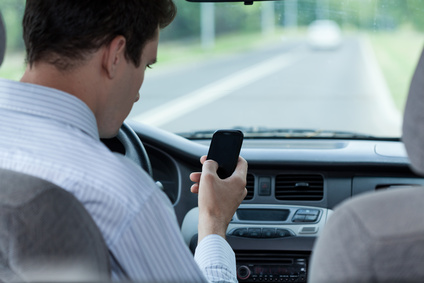The Pros and Cons of Cell Phones in Cars
Are Cell Phones Life Savers, or Do They Take Lives?
 The National Highway Traffic Safety Administration reported that texting while driving is responsible for 1.6 million crashes every year, which is the cause of 25 percent of all driving accidents. On the opposite side of the spectrum, families report that without a cell phone, loved ones couldn’t have been contacted during emergencies.
The National Highway Traffic Safety Administration reported that texting while driving is responsible for 1.6 million crashes every year, which is the cause of 25 percent of all driving accidents. On the opposite side of the spectrum, families report that without a cell phone, loved ones couldn’t have been contacted during emergencies.
States across the U.S. provide their citizens with specific driving laws. According to Governors Highway Safety Association, no state bans all cell phone use for all drivers. However, 37 states and Washington D.C. ban all cell phone use by novice drivers. Only 20 states and Washington D.C. prohibit cell phone use by school bus drivers.
In 2007, Washington was the first state to ban texting while driving, quickly followed by 42 more states, Washington D.C., Puerto Rico, Guam and the Virgin Islands. This leaves only seven states that allow texting while driving. Of these seven states, four prohibit texting by novice drivers and three prohibit texting by school bus drivers.
Many argue that cell phones allow drivers to call for help during emergencies, use maps on their smartphones when they’re lost and stay connected to coworkers and clients with business-related calls. Other citizens disagree, claiming that cell phones lead to accidents, injuries and deaths. Tunnel vision (defective sight due to focusing on a cell phone) eliminates peripheral vision and drivers lose focus while calling or texting.
According to Textinganddrivingsaftey.com, parents and experienced drivers are particularly concerned with young drivers, as 55 percent of them claim that “it’s easy” to text while driving. Also according to the website, five seconds is the minimal amount of time a driver’s attention is taken away from texting. If the driver is traveling at 55 mph, this equals driving the length of a standard U.S. football field without looking at the road. This kind of driving behavior is what makes a crash up to 23 times more likely.
Ultimately, the decision to use a cell phone while driving is a choice made by each individual driver. Laws can help enforce better driving, but personal decisions will lead to accidents or a lack thereof. It is the responsibility of individual drivers to make sure that each vehicle, whether it is a cheap Honda Civic bought on sale, or a repaired Ford Escape that you’ve won in a salvage auction, is in good-running condition. It is also the responsibility of individual drivers to ensure that no life is threatened by the use of a Samsung Galaxy or an Apple iPhone.
- Buying Salvage Cars: What to Expect on Auction Day - May 22, 2025
- Is Buying a Hail Damage Car Worth It? A Detailed Guide - December 2, 2024
- Affordable Luxury: The Best Budget Luxury Cars for Families in 2024 - November 21, 2024